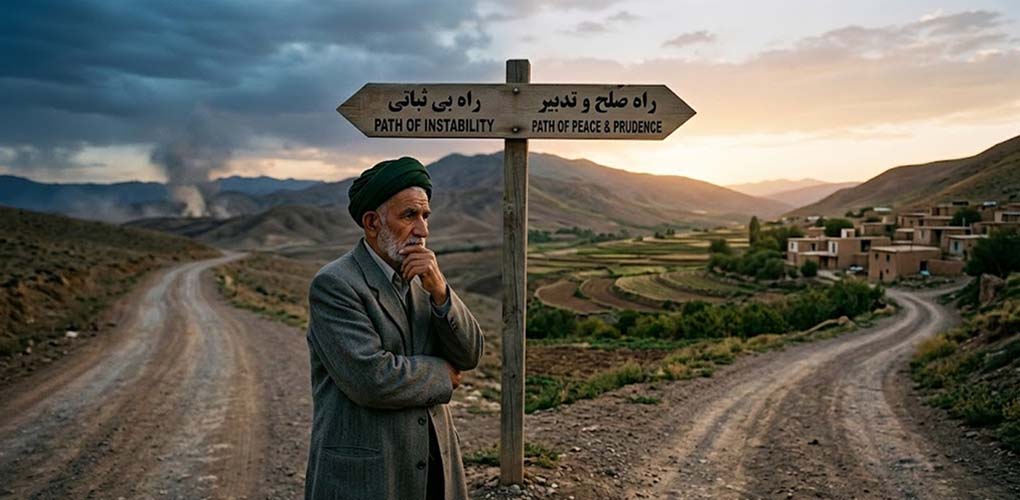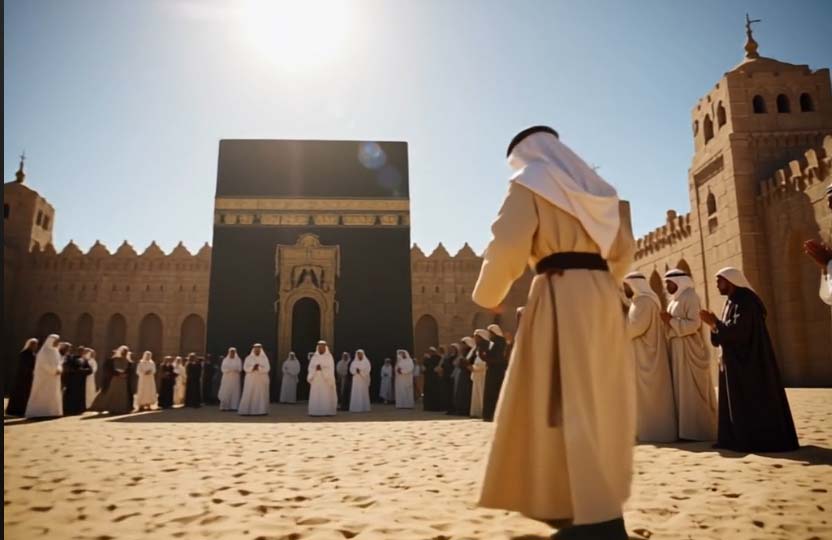By Najmuddin A. Farooqi.

I am deeply concerned for Iran and the Iranian people. I believe that every human life is as precious as my own. I pray to the Almighty Allah to save and protect humanity in these troubling times.Today, Iran finds itself increasingly isolated not due to external forces alone, but largely because of the actions of its own dictatorial, fanatical and hypocritical regime, which has persistently suppressed the voices of its people.
The moment appeals were made by Israel and the U.S. President, many began fleeing Tehran, a reflection of the internal fear and instability.Prime Minister Netanyahu’s decision to escalate military action against Iran is rooted in his long-standing belief that Iran seeks to annihilate Israel and erase it from the map. But Netanyahu himself has overseen the systematic destruction of the Palestinian people over a prolonged conflict. His criminal intent and malicious motives are no secret to the global community.
Ayatollah Ali Khamenei, Iran’s Supreme Leader, holds near-absolute power in the country and claims to be the only leader in the world who governs strictly according to Islamic principles. He refers to Arab and non-Arab nations not as Islamic countries, but as “Muslim countries,” suggesting a particular ideological stance.
A six-month Reuters investigation revealed that Khamenei controls a financial empire valued at approximately $95 billion an amount vastly exceeding the wealth of the late Shah of Iran, Mohammad Reza Pahlavi. This empire is not subject to parliamentary oversight, raising serious concerns about transparency and accountability.
Iran’s leadership often attempts to present itself as liberal and non-aggressive. It projects a carefully crafted image through sectarian media, portraying Iran as peaceful and submissive while simultaneously vilifying Arab countries particularly Saudi Arabia. However, the world is well aware of Iran’s support for militant proxy groups operating beyond its borders.
Iran has long backed groups like Hezbollah in Lebanon and the Houthis in Yemen, arming and financing them to pursue its regional objectives. This strategy has now largely backfired, as none of these proxies are in a position to offer meaningful support to Iran amid the current crisis.In addition, Iran has worked hard through its media networks to create the perception that Arab countries have failed to support the Palestinian cause and are instead complicit with the U.S. and Israel.
The reality is quite different. Saudi Arabia and Qatar have taken the lead within the Arab League to push for ceasefires and have played critical roles at the UN General Assembly and Security Council in holding Netanyahu accountable. Contrary to Iran’s narrative, many Arab countries, including Turkey and Pakistan, have historically sided with Iran on key issues.
Yet, Iran’s actions betray these alliances. On January 16, 2024, Iran fired missiles into Pakistani territory an unprovoked and unannounced attack. Similarly, on Sep 14, 2019 the Houthi militia widely considered an Iranian proxy launched a coordinated assault on Saudi Arabia’s key oil refinery operated by Saudi Aramco.
According to Houthi spokesperson Yahya Sarea, the attack targeted key oil refineries in Ras Tanura and Rabigh, as well as strategic sites in Riyadh.It is particularly disheartening that even as countries like Saudi Arabia have extended gestures of peace and diplomacy, Iran has consistently failed to respond positively.
This persistent hostility has led to the isolation Iran faces today. One of the most significant recent developments is Israel’s highly coordinated and precise military strike on Iranian targets something that has deeply unsettled the Iranian regime.Lastly, the Iranian regime, while claiming to uphold “pure Islam”, has long supported Bashar al-Assad’s brutal dictatorship in Syria a regime responsible for a devastating civil war and the use of militant forces against unarmed civilians. If Ayatollah Khamenei truly represents Islamic values, how does he justify supporting such a regime?
Let us all hope and pray that this conflict does not escalate further, and that no more precious lives are lost on any side. Those responsible for war crimes, including Prime Minister Netanyahu, must be held accountable under international law, including the Geneva Conventions.



